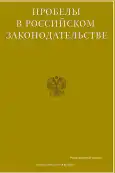Methodology of Forming Special Motor Skills and Abilities in the Process of Physical Training of Police Officers
- 作者: Bauaev S.K.1
-
隶属关系:
- North Caucasus Institute for Advanced Studies (branch) of the Krasnodar University of the Ministry of Internal Affairs of Russia
- 期: 卷 15, 编号 5 (2022)
- 页面: 47-51
- 栏目: Articles
- URL: https://journal-vniispk.ru/2072-3164/article/view/147587
- ID: 147587
如何引用文章
详细
作者简介
Shamil Bauaev
North Caucasus Institute for Advanced Studies (branch) of the Krasnodar University of the Ministry of Internal Affairs of Russia
Email: kodzokov.aznaur@bk.ru
senior lieutenant of police, Lecturer of the Department of Physical Training Nalchik, Russia
参考
- Order of the Ministry of Internal Affairs of Russia dated July 1, 2017 No. 450 “On approval of the Manual on the organization of physical training in the internal affairs bodies of the Russian Federation” [Electronic resource] // Access mode: https://www.garant.ru/products/ipo/prime/doc/71647620/ (accessed 04/24/2022).
- Gubzhokov A.Kh. Formation of motor skills for the use of combat fighting techniques in physical training classes in educational organizations of the Ministry of Internal Affairs of Russia // Modern science-intensive technologies. 2021. No. 2. pp. 139-143.
- Kodzokov A.Kh. Orientation of physical training of employees of internal affairs bodies // Education. The science. Scientific personnel. 2019. No. 3. S. 146-148.
- Meshev I.Kh. Means and methods of development of priority professional qualities of employees of special units in the process of physical training // Science and sport: modern trends. 2018. V. 20. No. 3 (20). pp. 109-113.
- Meshev I.Kh. Ways to implement the principles of physical training of students of educational organizations of the Ministry of Internal Affairs of Russia // Education. The science. Scientific personnel. 2019. No. 3. pp. 153-155.
- Meshev I.Kh., Kodzokov A.Kh., Khazhirokov V.A. The role of physical training in the professional activity of employees of the internal affairs bodies of the Russian Federation // Pedagogical journal. 2019. V. 9. No. 5-1. pp. 29-35.
- Tkhazeplov R.L. Actual issues of the formation of applied motor skills among police officers in the classroom for physical training // Pedagogical journal. 2019. V. 9. No. 5-1. pp. 218-224.
- Khazhirokov V.A. Organization and improvement of physical training skills of students studying in higher education institutions of the Ministry of Internal Affairs of Russia // Education. The science. Scientific personnel. 2019. No. 1. pp. 203-205.
- Khazhirokov V.A. Specific features of professional-applied physical training in educational institutions of the Ministry of Internal Affairs of Russia // In the collection: Physical education and sport: topical issues of theory and practice. Collection of articles of the All-Russian Scientific and Practical Conference. Managing editors V.M. Barshai, A.A. Tashchiyan. 2019, pp. 138-143.
- Yakhutlova E.B., Cherkesov R.M. Ways to improve motor skills and abilities in physical training classes // Physical culture and health. 2020. No. 4 (76). pp. 65-67.
补充文件








